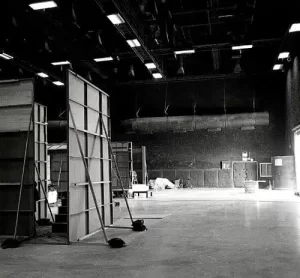Finding a studio in the UK
can depend on various factors, such as your location preferences, budget, and the type of studio you need (e.g., photography, recording, art, dance, etc.). Here are some steps to help you find a suitable studio:
. Determine Your Needs:
– Define the purpose of the studio space (e.g., photography, music production, art, dance, etc.).
– Identify your budget constraints.
– Determine the size and specific requirements of the studio space you need.
Choose a Location:
– Decide on the city or region in the UK where you want to find a studio. Consider factors like accessibility, proximity to your target audience, and cost of living.
Online Search:
– Use online platforms and websites to search for available studio spaces. Popular websites include Gumtree, SpareRoom, StudioShare, and Creative Spaces.
– Check out social media groups and forums related to your field (e.g., Facebook groups, Reddit communities) where people often share studio listings.
Contact Local Agencies:
– You can try contacting local estate agencies when finding a studio in the UK as they are often party to what studio space is available.
– However, by far the most efficient and affordable method of finding a studio in the UK is to go to a specialist service.
Out of the handful of reputable services extant in the UK, we found The Studio Finder to be the most efficient, delivering good quality prospects according to the criteria you give them. This has saved us untold time and money in the time we have employed their service.
The head of Studio Finder, Emma Norris, says “It was born out of my witnessing the frustration experienced by location managers and producers in their attempts at finding a studio in the UK . I felt that what was lacking was the human touch, the knowledge of someone who’d been in the business for long enough to know how things work”
Nostairway Creative now uses The Studio Finder whenever we are seeking studio space.
We simply let them know our requirements and they do the rest. And the best part is, it’s free to productions seeking studio space. A no-brainer in our opinion.
Networking:
– Attend local events, workshops, and networking gatherings related to your field is a good way of finding a studio in the UK. You may meet fellow artists, creators, or professionals who know of available studios or can offer recommendations.
Collaborate:
– Consider sharing a studio space with other artists or professionals to split the costs and make it more affordable.
– Look for co-working spaces or creative hubs that offer studio spaces for rent.
Visit the Studios:
– Once you find potential studio spaces, schedule visits to inspect them in person.
– Assess factors like location, size, lighting, ventilation, security, and amenities.
Review Lease Terms:
– Carefully review the lease agreement, including terms, duration, rent, and any additional costs (e.g., utilities, maintenance).
– Ensure that the lease terms align with your needs and budget.
Budget Considerations:
– Factor in all costs associated with the studio, including rent, utilities, insurance, and any necessary renovations or equipment purchases.
Legal and Permits:
– Ensure that the studio complies with local zoning and permit requirements for your specific use (e.g., for commercial or creative purposes).
Make a Decision:
– Once you’ve gathered all the necessary information, make an informed decision and finalize the rental or lease agreement. It’s all very well meticulously finding a studio in the UK, but it’ll do no good if you are a procrastinator.
Location Manager
Of course, finding a studio in the UK becomes a little easier if you have the budget. Like most major production companies, you could hire a location manager.
The job of a film location manager is crucial in the process of filmmaking. They are responsible for finding and securing suitable locations for various scenes in a film or television production. Here is an overview of their responsibilities and tasks:
- Scouting Locations: Location managers begin their work by reading the script and collaborating with the director, production designer, and other key personnel to understand the specific requirements for each scene. They then scout potential locations, considering factors like the script’s description, visual aesthetics, logistical feasibility, and budget constraints.
- Location Research: Research is a significant part of their job. Location managers need to find unique and visually appealing places that match the script’s requirements. This might involve exploring a wide range of options, from existing buildings and landscapes to historical sites or even constructing sets when necessary.
- Permitting and Negotiations: Once a suitable location is identified, location managers negotiate with property owners or government authorities to secure the necessary permits and permissions for filming. This can involve addressing legal, logistical, and financial aspects of location use.
- Budget Management: Location managers are responsible for managing the budget allocated for securing and using locations. They need to balance the creative needs of the production with financial constraints, negotiating rental fees and handling other related expenses.
- Coordination: They coordinate with various departments, such as transportation, set design, art direction, and security, to ensure that the location is prepared and safe for filming. This involves scheduling and managing the logistics of cast and crew at the location.
- Problem-Solving: Unexpected issues often arise during location shoots, and location managers must be skilled problem-solvers. Whether it’s dealing with weather-related challenges, unexpected access issues, or last-minute changes to the script, they must find solutions quickly and efficiently.
- Communication: Effective communication is crucial. Location managers must maintain clear and open lines of communication with the production team, property owners, local authorities, and any other relevant stakeholders to ensure a smooth filming process.
- Safety and Legal Compliance: They are responsible for ensuring that all safety regulations and legal requirements related to filming in a particular location are met. This includes securing insurance and handling any liability issues.
- Location Scouting Software: Many location managers use specialized software to catalog and manage potential locations, making it easier to share information with the production team and track the status of different locations.
- Final Wrap: After filming is completed at a location, the location manager oversees the cleanup and restoration of the site, ensuring that it is returned to its original condition or as agreed upon with the property owner.
Location managers play a critical role in the overall success of a film or television production by finding the perfect settings to bring the script to life. Their ability to balance creative vision, logistics, and budget considerations is essential for a smooth and efficient filmmaking process.
Sri that’s our look at finding a studio in the UK . We love to talk all things production. So, if you want to chat, drop us a line HERE


Recent Comments